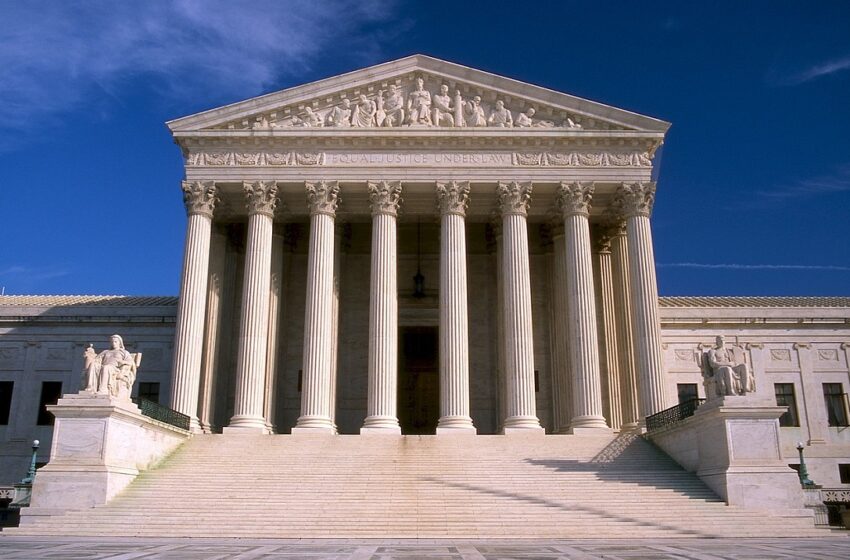Supreme Court bans race based college admissions


Nikki Haley and Vivek Ramaswamy welcome decision saying “picking winners & losers based on race is fundamentally wrong”
In a major blow to affirmative action in higher education, the Supreme Court Thursday struck down race-conscious admissions programs at Harvard and the University of North Carolina.
In a 6-3 ruling divided along ideological lines, the apex court found that the universities discriminated against white and Asian American applicants by using race-conscious admissions policies that benefited applicants from underrepresented backgrounds.
READ: Minnesota public affairs school adds caste to non-discrimination policy (September 7, 2022)
Students for Fair Admissions, the group that challenged the Harvard and UNC policies, lauded the decision, saying that it “marks the beginning of the restoration of the colorblind legal covenant that binds together our multi-racial, multi-ethnic nation.”
The group’s leader Edward Blum also called on elite universities to eliminate their preferences for admitting children of alumni, faculty and staff, athletes and donors.
Two Indian American Republican presidential candidates also welcomed the Supreme Court decision.
“The world admires America because we value freedom & opportunity. SCOTUS re-affirmed those values today. Picking winners & losers based on race is fundamentally wrong,” Haley stated.
“This decision will help every student—no matter their background—have a better opportunity to achieve the American dream,” she added.
“I’m glad the US Supreme Court finally laid to rest one of the worst failed experiments in American history: affirmative action,” Vivek Ramaswamy stated.
Chief Justice John Roberts wrote for the majority in the case. He was joined by the five other conservative justices. The three liberals dissented.
“Eliminating racial discrimination means eliminating all of it,” Roberts wrote. “The Harvard and UNC admissions programs cannot be reconciled with the guarantees of the Equal Protection Clause,” in the 14th Amendment that bars the government from discriminating on the basis of race.
Read: Asian American civil rights groups support race-conscious admissions (August 3, 2022)
“Both programs lack sufficiently focused and measurable objectives warranting the use of race, unavoidably employ race in a negative manner, involve racial stereotyping, and lack meaningful end points. We have never permitted admissions programs to work in that way, and we will not do so today.”
The chief justice stressed in his ruling, however, that the court was not entirely prohibiting schools from taking account of applicants’ experiences related to race as long as such factors aren’t a subterfuge for explicit consideration of race.
“Nothing in this opinion should be construed as prohibiting universities from considering an applicant’s discussion of how race affected his or her life, be it through discrimination, inspiration, or otherwise,” Roberts wrote.
“But, despite the dissent’s assertion to the contrary, universities may not simply establish through application essays or other means the regime we hold unlawful today.”
Justices Sonia Sotomayor and Ketanji Brown Jackson each wrote separate dissents joined by the court’s other Democratic appointee, Elena Kagan.
“Today, this Court stands in the way and rolls back decades of precedent and momentous progress,” Sotomayor wrote in her 69-page dissent.
“By ending race-conscious college admissions, this Court closes the door of opportunity that the Court’s precedents helped open to young students of every race,” wrote Sotomayor.
Harvard University and the University of North Carolina Chapel Hill, the universities at the heart of the Supreme Court’s ruling that were challenged by students, responded to Thursday’s decision by vowing to figure out a way forward.
“We write today to reaffirm the fundamental principle that deep and transformative teaching, learning, and research depend upon a community comprising people of many backgrounds, perspectives, and lived experiences,” the Harvard leadership stated.
“That principle is as true and important today as it was yesterday. So too are the abiding values that have enabled us—and every great educational institution—to pursue the high calling of educating creative thinkers and bold leaders, of deepening human knowledge, and of promoting progress, justice, and human flourishing.”
READ: Supreme Court guts affirmative action, effectively ending race-conscious admissions (June 29, 2023)
The Ivy League school said that for almost a decade it had “vigorously defended an admissions system that, as two federal courts ruled, fully complied with longstanding precedent.” In the coming weeks and months, Harvard said it would work to “determine how to preserve, consistent with the Court’s new precedent, our essential values.”
“On behalf of the people of our state, we will work with the administration to ensure that the University of North Carolina at Chapel Hill complies fully with today’s ruling from the nation’s highest court. We intend for America’s oldest public university to keep leading,” said David L. Boliek Jr., the chair of UNC-Chapel Hill’s Board of Trustees speaking on behalf of the board.

